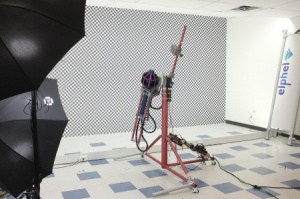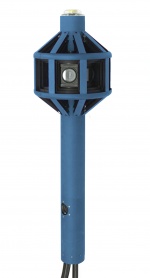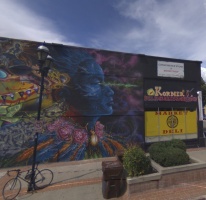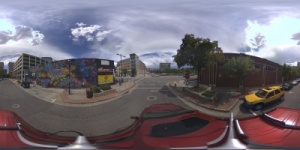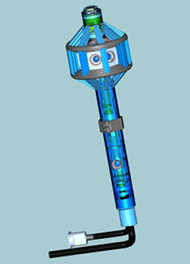Elphel Eyesis4Pi 393
|
|
elphel Eyesis4Pi 393 Basic Data Category: Projekte URL (first publication): https://www3.elphel.com/eyesis4pi-393
Project status:
Technical documentation Maturity of the project:
no no
Other
Assembly instructions are editable: Bill of materials is editable: Design files are in original format: No Free redistribution is allowed licence: No
Project management
Open-o-meter: 0 Product category: Cameras & Optics Contains original non-electronic hardware: Contains original electronic hardware: Contains original software: |
Inhaltsverzeichnis
Description
Elphel Development Blog
Wiki Recent Changes
Elphel GIT logs
Elphel CVS logs
Who's online
There are currently 0 users online.
Eyesis4Pi 393
Contents
Status
Available
Overview
- The system is to compensate for optical aberrations allowing to preserve full sensor resolution over the field of view.
- is performed for precise pixel-mapping to automatically stitch images into panoramas, and also for and .
- There are 24 x 5MPix sensors in the camera head, resulting in 120 MPix image acquisition. Panorama image resolution after stitching is 64 MPix, the equirectangular projection is 14000x7000.
- High-precision Inertial Measurement Unit IMU (ADIS 16375, 2400 samples per second) is integrated with the camera, as well as 5Hz GPS (Locosys LS20031) to provide precise position and orientation of the camera.
- Images, synchronized with IMU and GPS data, can be recorded to internal Solid State Drives (SSD), external swappable SSDs or to a PC over the network.
- Optionally Eyesis4Pi-393 camera system includes PC for image downloading and post-processing with pre-installed SDK and Free and Open Source Software for camera calibration, image acquisition and panorama stitching.
- Eyesis4Pi-393 can be mounted on a car for outdoor panoramic applications or carried by a person, which lets successfully create panoramas of small and narrow spaces.*
Automated panoramic imagery and 3-dimensional panoramas are the 2 main applications of Eyesise4Pi-393 camera.
*Car and backpack mounts are not included.
Improvements over the earlier generation- new system boards
- compressor bandwidth: 1 GPix/s vs. 85 MPix/s
- only 3 system boards needed to support all 26 sensors vs. 9
- contemporary OpenEmbedded Linux OS
- full 5 FPS at high quality vs. 2 FPS
- faster recording speed: 220 MB/s x 3 vs. 16 MB/s x 9
- Gigabit Ethernet vs. 100 MB
- more compact
- more lightweight
Features and Specs
- 4*π (360x180) full sphere coverage
- 64 MPix panoramic image resolution after stitching
- Final panoramic image equirectangular projection dimensions - 14268x7135
- 0.05 Pix stitching precision
- Very small parallax - distance between entrance pupils: 46.5 mm
- High resolution lenses: 26x M12 lens mount
- Calibrated fixed lens to compensate for the lenses distortions
- 10" (0.1 pix) in the center 80% x 80% area
- 30" (0.3 pix) maximal error over the full FoV
- <0.03um/° thermal expansion
- Precise image capture synchronization
- RAW or compressed image formats
- Images are geo-tagged (Exif) - 5Hz GPS receiver ()
- High-precision IMU
- Recording to:
- internal SSDs - not swappable - 3x m.2 SSDs (physical size: 2242 or 2260)
- external SSDs - swappable - 3x 2.5" SSDs connected in a hot swap rack
- PC over network
- Web Based GUI
- SYNC cable allows:
- receive and log external trigger (from a sensor such as odometer or extra GNSS system)
- generate output signal to trigger other sensors or cameras
- Weatherproof camera body and camera pole
- Dimensions: 230x760 mm (9x30")
- Weight: 8 kg (18 lbs)
- The Eyesis4Pi-393 system is highly customizable
- Free Software and Open Hardware
Image samples
- Post-processing results (equirectangular projections) and demos:
Operation
- The system is controlled from a laptop via a . Which also displays real-time previews and parameters.
- Power consumption is about 50W.
- Power supply:
- AC/DC power adapter (input: 110V/220V, output: 48V 2A) and can be used with a car power adapter (inverter), when mounted on a car roof.
- 48V batteries (48V 4Ah - about 1-2 hours of operation)
Calibration
We have developed full calibration process and post-processing software to compensate for:
- Optical aberrations, allowing to preserve full sensor resolution over the camera FoV.
- Distortions – for precise pixel-mapping for photogrammetry and 3D reconstruction.
The is performed using the machine (goniometer) that rotates the camera about 2 axes by precisely known angles. To calibrate IMU one needs to match the goniometer angles with the IMU data.
Check out these articles for more details:
Software
All software is FOSS (Free and Open Source Software). It is experimental software that is used to test the camera performance, and it continues to be developed. All updates are available for download and build from . Software may require integration with customer software depending upon camera hardware configuration and application. It includes:
- Camera internal software/firmware and SDK
- Post-processing tools
- Calibration data
Workflow and user guides
3D Model
More information
How to buy
We are directly accepting orders and ship worldwide. Please contact Elphel for Lead Time and Quotes:
- Phone: (801) 783-5555 x 107
- Toll-free: (888) 3 ELPHEL
Links
+ General Reviews 
Public cad repository for non-electronic hardware
Public cad repository for electronic hardware
Public code repository
Link github
Link gitlab
Link media wiki
